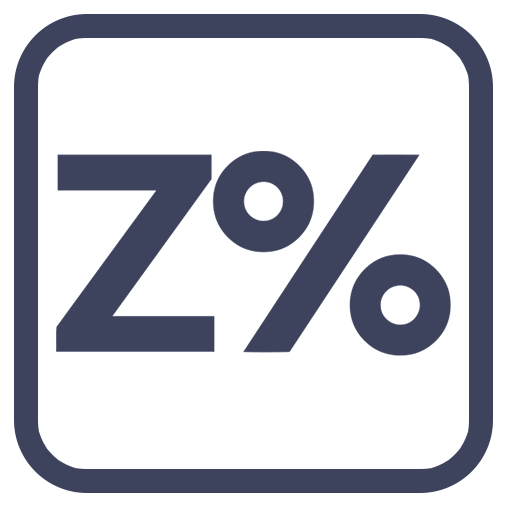-

- Interest Rate2.25
- Inflation Rate MoM0
- Inflation Expectations4
- Retail Sales MoM0
- GDP Growth Rate0.6
- GDP m/m0.1
- Manufacturing PMI48.6
- Services PMI 46.5
- Unemployment Rate6.8
-

- 0.75Interest Rate
- 0Inflation Rate MoM
- 2.4Inflation Expectations
- 0Retail Sales MoM
- 0GDP Growth Rate
- GDP m/m
- 51.5Manufacturing PMI
- 53.4Services PMI
- 2.6Unemployment Rate
Day Trading
Short Term/Scalp Opportunity
![]()
Waiting for confirmations
Swing Trading
Long Term Opportunity
Short at major resistance areas
✅
Fundamental Bias is Bearish
✅
Forecast is Bullish
✅
Trend is SELL
Dynamic resistance at R3 (113.899) and R4 (114.277) could be apropos entries
The Canadian Dollar (CAD) is the currency of Canada, and it is often referred to as the "Loonie" due to the loon bird depicted on the one-dollar coin. The CAD is heavily correlated with commodity prices, particularly oil, as Canada is one of the world’s largest oil exporters. The price of crude oil directly impacts the CAD’s value, making it a commodity-linked currency. The Bank of Canada (BoC) controls the monetary policy for the CAD. Other key price drivers for the CAD include interest rates, inflation data, and Canada’s trade balance. Economic growth in the US, as Canada’s primary trading partner, also affects the CAD, with stronger US demand often supporting a stronger Canadian Dollar. Fluctuations in global oil prices remain the most significant impact factor for the CAD.
The Japanese Yen (JPY) is the official currency of Japan and is one of the most traded currencies worldwide. Known for its stability, the JPY is often seen as a safe-haven currency in times of global uncertainty. The value of the Yen is closely tied to Japan’s economic performance, particularly its export market, and monetary policy set by the Bank of Japan (BOJ). The JPY often has an inverse relationship with the USD and Euro, strengthening during periods of market risk aversion. Important factors influencing the JPY include Japan’s GDP growth, inflation, and trade balance, with a focus on export-driven industries such as automotive and electronics. The Yen can also be impacted by geopolitical tensions, particularly in East Asia, and by changes in US interest rates.
 CADJPY Analysis
CADJPY Analysis
Introduction
The CAD/JPY is closely correlated with oil prices, as Canada’s economy relies on energy exports. A rise in crude oil often supports the CAD, while the JPY tends to appreciate during risk-averse market conditions. This pair is influenced by the commodity market, especially oil, and by interest rate decisions from both the Bank of Japan and the Bank of Canada.
Fundamentals and Interest Rates
The Bank of Canada policy is Dovish with the (BOC) current Interest rate 2.25%. Latest change was Oct 29, 2025 (-25bp)%.
On that side the Bank of Japan policy is Hawkish and (BOJ) has set its interest rate to 0.75% by latest change, Dec 19, 2025 (25bp).
(BOC) Higher interest rates generally lead to higher returns on investments denominated in CAD. This tends to attract foreign capital into CAD assets.
Based on the economic and macro fundamental data, The Fundamental Bias of CAD is Weak Bearish and for the JPY is -- Neutral.
Ziwox considering Weak Bearish bias for this asset and we expect prices to decline in the long-term.
Our Ziwox A, mid-term Fundamental Score for CAD is 2. and Fundamental Score for JPY is 4. So, base on the Fundamental Score, we predict mid-term downside price movement.
Market Overview & Performance
In the current trading session, "Tokyo", Market risk sentiment is Strong Risk-OFF. The United States Dollar and British pound recorded the strongest performance, while the Gold and Australian dollar are weakest so far.
Currencies performance vs US dollar "USD"
Gold "XAU", recorded a -10% decrease against us dollar.
Euro "EUR", performance has been -1% down so far
Pond "GBP", performance has been -0.91% down as of now
Australian dollar "AUD", has dropped by -1.19%
New Zealand dollar "NZD", has dropped by -0.93%
Japanese YEN "JPY", experienced -1.07% fall
Swiss franc "CHF", experienced -1.14% fall so far
Canadian dollar "CAD", has lost -0.94%
Market risk sentiment is OFF, Investors seek safety, favoring safe-haven currencies and assets while selling off riskier investments.Due to the market risk sentiment, CADJPY price reduction is likely. Becasue investors become risk-averse from CAD, seeking safety amid uncertainty or market turmoil, leading to a sell-off in riskier assets and a flight to safe havens like the USD, JPY, and gold. Currencies tied to riskier economies (e.g., AUD, NZD) tend to weaken.
Market Sentiment and Positioning
CAD COT (Commitments of Traders):
Institutions Net Position on >Canadian Dollar is -16046 included 77169 long, 93215 short and 25739 position changed from last week.
So they mainly have a bearish view on this asset and sold CAD for lower prices in long-term.
Last week 25739 repositioning Indicates closed positions and short-term profit-taking.
JPY COT (Commitments of Traders):
Institutions Net Position on >Japanese Yen is -33933 included 104460 long, 138393 short and 10896 position changed from last week.
So they mainly have a bearish view on this asset and sold JPY for lower prices in long-term.
Last week 10896 repositioning Indicates closed positions and short-term profit-taking.
Retail Traders:
Crowd traders or Retail traders are bullish on the CADJPY with 77% 23% ratio. 0 long pos and 0 short position.
We generally adopt a contrarian approach towards crowd sentiment and we give probability CADJPY prices may decrease.
Technical Levels and Support/Resistance
The CADJPY pair is approaching a critical technical support level near 111.860.
Technical trend is Sell, So If the pair continues to weaken, this support could become a significant area to watch for potential reversal or consolidation.
On the upside, there is key resistance near 114.277. Technically, If the pair continues to the upside, this resistance level could become a significant area to watch for sell entery potential.
Unlock all Ziwox Terminal features with affordable subscription
Our forecasts, signals, and trade opportunities are provided to help you stay informed, but we do not take responsibility for any potential losses.
Additionally, we do not offer financial or investment advice in this section of the website.
Before engaging in foreign currency trading, its important to carefully consider your own investment goals, experience level, and risk tolerance.
We want to emphasize that we cannot be held liable for any loss or damage, including potential profit loss, that may result from using or relying on this information. Your decisions are ultimately your own, and we encourage you to approach trading with caution and awareness.









